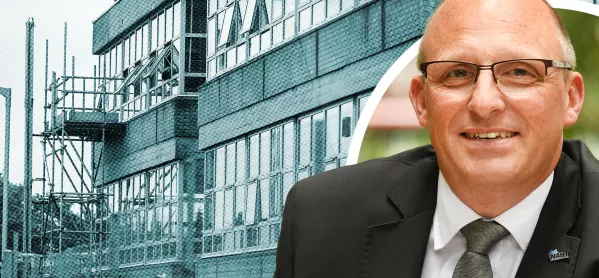More than a third of headteachers have had to raise funds to cover estate management and buildings, a survey of school leaders has revealed.
Nearly four in 10 (37 per cent) heads reported that they’ve been forced to find external sources of funds to fix school buildings amid a “crisis of capital investment”, according to the NAHT school leaders’ union.
The majority of school leaders (83 per cent) also told the union that they lack the funding needed to maintain their school buildings.
NAHT asked 1,048 of its members about the condition of their buildings, following increasing demand for the Department for Education to invest more in the school estate.
“The crisis of capital investment in our schools has been brewing for 14 years,” said Paul Whiteman, general secretary of NAHT.
The union is calling for urgent government investment in school estates now to prevent costs running further out of reach.
Speaking out ahead of its annual conference later this week, NAHT said it also wants to see additional investment of £4.4 billion annually to upgrade school buildings.
Hundreds of schools have ‘quietly slipped into disrepair’
“In the last year, while the RAAC (reinforced autoclaved aerated concrete) crisis has grabbed headlines, hundreds more school buildings have quietly slipped further into disrepair,” Mr Whiteman warned.
Schools impacted by RAAC can still defer their Ofsted inspections, the watchdog announced last week.
However, calls for a timeline for rebuilding plans for schools impacted by the crumbly concrete remain unanswered, despite the DfE announcing last week that it had completed all surveys of schools with suspected RAAC.
A further six in 10 heads (62 per cent) told NAHT they are either dissatisfied or very dissatisfied with the state of their school buildings.
And nearly one-fifth (18 per cent) of survey respondents reported that parts of their school estate, including specialist classrooms, laboratories, playgrounds, kitchens and toilets, can’t be maintained.
“Our children deserve to learn in safe, comfortable conditions,” Mr Whiteman added.
“With a general election on the horizon, I urge all political parties to commit to a long-term plan backed up by serious new investment to ensure all school buildings are safe and fit for purpose.”
Nearly all school leaders (94 per cent) reported that the cost of building work had risen owing to inflation, with just 5 per cent of heads feeling that they had enough money to ensure buildings met pupils’ needs.
School leaders told the union they could not invest in improvements to facilities for pupils because they are being forced to pour money into essential building repairs.
A Department for Education spokesperson said school funding is rising to the highest ever level in real terms per pupil this year to help schools meet their costs.
“The vast majority of schools are operating with a surplus, and there is no expectation that parents contribute to support schools’ costs,” the spokesperson added.
For the latest education news and analysis delivered directly to your inbox every weekday morning, sign up to the Tes Daily newsletter




